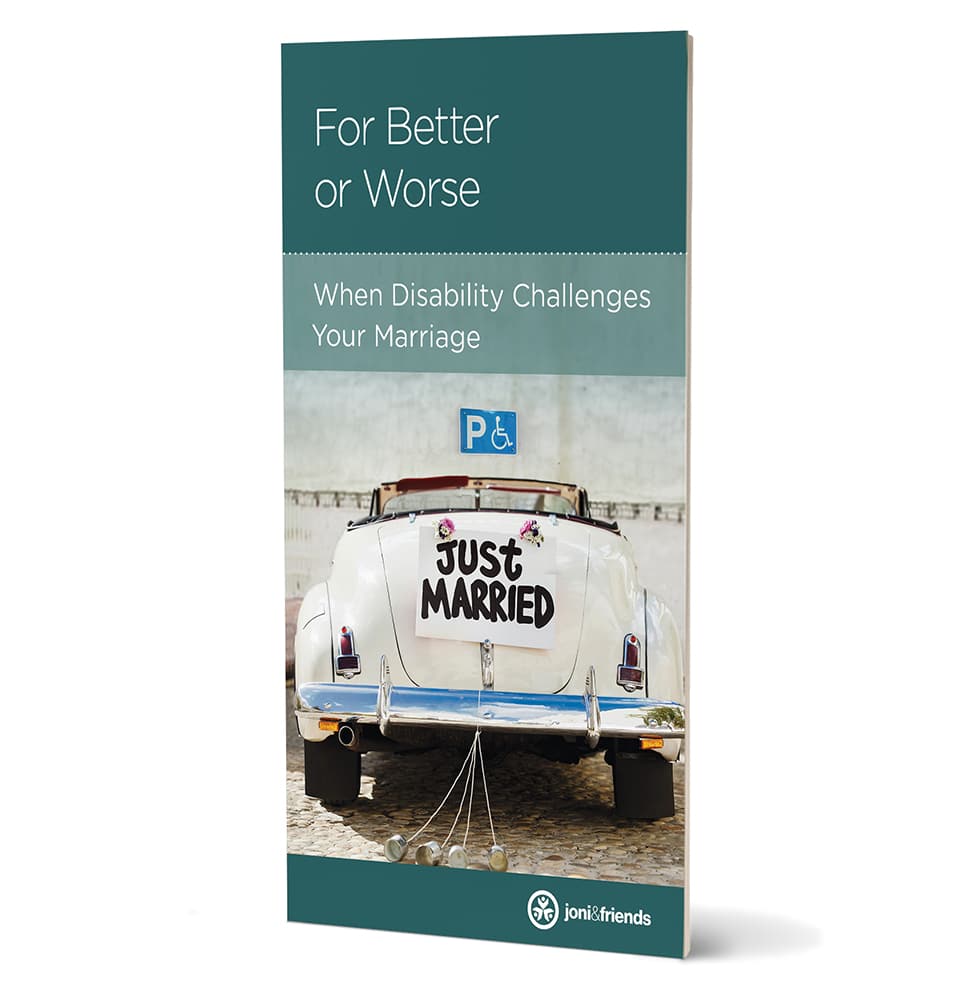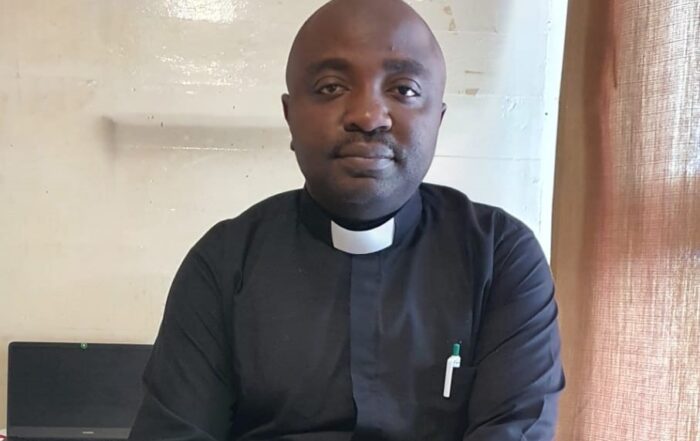Staying Hopeful In Hardships

Hi, I’m Joni Eareckson Tada with my husband Ken today. Hi, Ken!
KEN: Hi, Joni, and I am so thankful to be with my favorite person in the world.
JONI: Oh, my goodness; it’s so sweet for you to say that, especially since you see me at my worst. I mean, behind closed doors, at the end of a long day of pain, sitting in my wheelchair; when I’m discouraged, feeling down, you see it.
KEN: Yeah, I see you once in awhile like that. Not very often. But I do see you that way.
JONI: Well, the other week, I was so tired of my quadriplegia. Remember that?
KEN: You were tired, but – you were tired of your quadriplegia, but you were just tired, period. And sometimes when we’re tired, we react in a way that we don’t usually.
JONI: Yeah. And sometimes we say things we just, you know, like why did I just say that? But I told you that night, I said, I remember, “Ken, I feel badly about confessing this, but I am so ready to go home to heaven. I don’t want to do this disability thing anymore. I’d be so relieved if I die tomorrow.”
KEN: Job said in 3:11, “Why did I not die the day I was born?” And yet at the end, He said Job did not sin. You know, I don’t think you actually committed a sin.
JONI: And I tell you, I was just being honest. Sometimes this disability just makes me want to go to heaven, right? But you were so sweet to remind me that it was okay. You know, it’s just understandable to say things sometimes that are a little bit rash. Then, God is so merciful. He looks down at me in this wheelchair and He says, “Joni, you’re not sinning.” That was really sweet for you to remind me of that. And I think that everybody in their worst times, in their least consistent moments – everybody feels that way. People can think, “That’s it! I’m tired of this grief that won’t go away.” Or maybe somebody else might think, “I’m tired of constantly bearing up under this horrible pain in my feet, this neuropathy; I’m always feeling alone; I just want to disappear.” I mean, sometimes you feel like that with caregiving.
KEN: Oh, absolutely.
JONI: Ken, describe some of those caregiving routines.
KEN: I have to drive you home; then I have to cook dinner; and then…
JONI: Put it on the table.
KEN: …put it on the table; wash the dishes.
JONI: And then you position my pillows at night before I go to bed. And then sometimes often you have to get up in the middle of the night to turn me.
KEN: But I have learned that it’s okay to say, “I’m tired,” without sinning.
JONI: Yeah, absolutely. And at times when you tell me that you’re worn out and tired – even feeling trapped – I have learned to understand. To not fault you for feeling that way. It’s totally understandable that you would feel worn-out. And the empathetic response to you, when you’re feeling weary, is for me not to fault you for it, but to say, “Oh, sweetheart, if I were you, I’d feel the exact same way; I totally get it; I totally understand.” You know, Ken, you write about this so powerfully in that little booklet you did recently called “For Better or For Worse,” and what I like about it is, you really bring back emotional balance with the Word of God. And there’s a favorite verse from Romans that you’re always quoting to me.
KEN: It was Romans 12:12: “Be joyful in hope, patient in affliction, faithful in prayer.”
JONI: You say it to me all the time.
KEN: I try. But I don’t have to say it to you all the time. But just those times where it seems like you need it.
JONI: Thank you, sweetheart. And you know, friend listening, it all goes to show that the Word of God is sufficient for every need, even when we’re feeling weary and worn-out. Scripture is such a gyroscope for people like me when I get weary of all my hardships; Scripture gives balance; it keeps you spiritually centered, upright, focused. Because with this disability – isn’t it true, Ken? – we are way too prone to forget in the darkness what we know we believe in the light. Right?
KEN: Oh, absolutely.
JONI: You gotta go to my radio page at joniradio.org and get Ken Tada’s little booklet. It is so powerful. It’s called “For Better or For Worse,” and it is fitting to offer it – this is Mental Health Awareness Month; can you believe it? So, get yours today at joniradio.org. And, Ken Tada, thank you for that reminder from Romans chapter 12! You want to repeat it again?
KEN: “Never be lacking in zeal, but keep your spiritual fervor, serving the Lord. Be joyful in hope, patient in affliction, faithful in prayer.”
JONI: Thank you for keeping me on that straight and narrow with Romans chapter 12.
KEN: You’re welcome, hun.
© Joni and Friends
 For Better or Worse
For Better or Worse
Disability presents unique challenges and pressures in even the best of marriages. Ken Tada, married to Joni Eareckson Tada for more than 37 years, shares how disability is an invitation for you and your spouse to depend on Jesus in your weakness and grow closer to each other than you ever thought possible.





